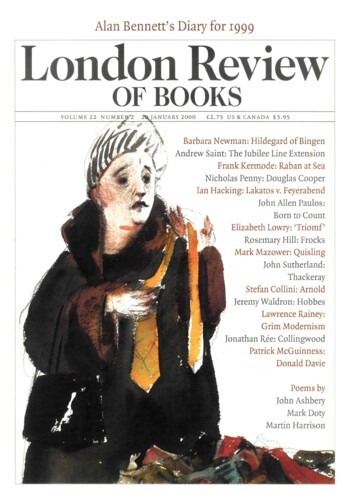Counting Body Parts: Born to Count
John Allen Paulos, 20 January 2000
Most people nowadays who claim to lack a ‘mathematical brain’ can easily sit down to multiply 231 by 34 or divide 2119 by 138 and come up with the answers. Yet in the 15th century Northern European merchants had to send their mathematically gifted sons to Italy to learn how to accomplish these feats. Arabic numerals were not yet in wide use, and German universities weren’t the place to find out about the arcane arts of multiplication and division. Before smiling indulgently, however, try multiplying the Roman numerals DCL and MLXXXI or dividing MDCCCVII by CCLXIV without first translating them into our own system of numerals. So who has more number smarts, the present-day self-styled innumerate or the mathematically gifted German student from five hundred years ago?‘


